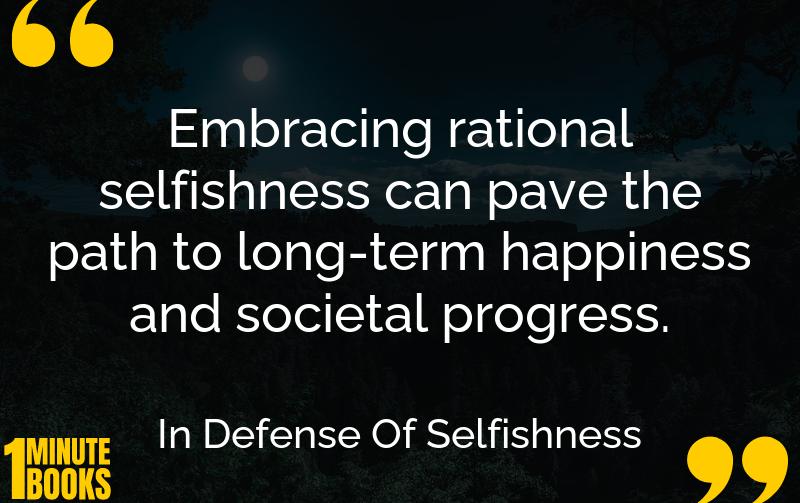
Peter Schwartz challenges altruism in ‘In Defense of Selfishness,’ advocating for rational selfishness as a route to happiness and societal progress. He suggests that altruism undermines individuality and identity, fostering dependency.
Main Lessons
- Question the moral authority of altruism and its impact on personal self-worth.
- Altruism can lead to collectivism, diminishing individual identity.
- The myth of public interest supports misleading notions of personal sacrifice.
- Altruism doesn’t always benefit the needy, often creating dependency.
- Rational selfishness is rooted in logic and the pursuit of personal happiness.
- Voluntary exchange in selfishness ensures mutual satisfaction.
- Self-love and protection of values should be inherent motivations.
- True selfishness doesn’t enslave one to others’ needs but champions independence.
- Societal progress stems from individuals pursuing their self-interest.
- Capitalism, valuing individual rights and property, is incompatible with altruism.
- Upholding rational selfishness safeguards autonomy and liberty.
- A capitalist society supports productivity and individual rights over state dependence.
- Fostering rational selfishness can lead to thriving, harmonious societies.








